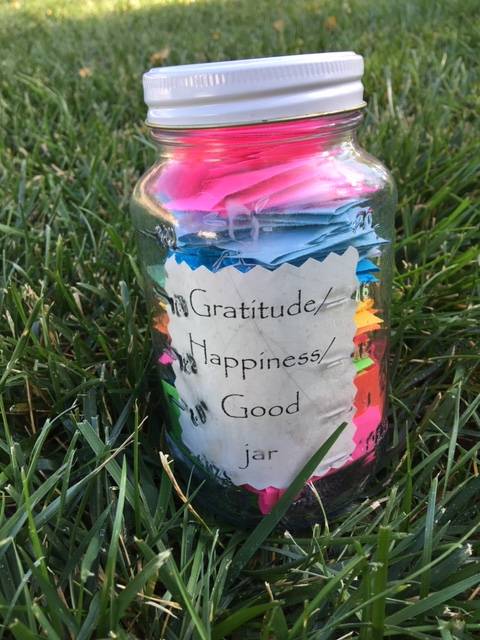How a Practice of Gratitude Can Increase Your Happiness

I was recently listening to a podcast wherein the person being interviewed was a researcher on happiness. The research shows that about 50% of one’s capacity for happiness is genetic, 10% is based on one’s life circumstances, and 40% is the wiggle room area wherein one’s personal habits come in to play. It really got me thinking about all we can do in that 40% range that could positively impact levels of happiness.
It was surprising to me that only 10% was found to be based on life circumstances – where you live, where you work, socio-economic status, if you’re married and who you’re married to, what your family life is like, and so forth. Don’t we tend to get caught up in the “if ___(blank)_____, then I’ll be happier”? Once I lose 25 pounds, then I’ll be happier; once we get that new house, then I’ll be happier; If only I had more money, then I’d be happier. You see the trend I’m getting at. And yet those circumstantial things were only 10%.
The 50% genetic would arguably include things like temperament and any mental health or substance abuse that runs in the family, as there is an increased in risk or genetic vulnerability for Major Depressive Disorder for example. And there’s nothing we can do about the genes we were born with.
40% though is a nice chunk of room for our personal habits to impact our happiness quotient. A main habit that comes to mind is gratitude and how developing a gratitude practice/ expressing gratitude can have a big impact while costing relatively little time or supplies (i.e., no monthly gym membership or subscription fee to work on gratitude). A relatively simple way to work with gratitude is to write down one or two things daily that you feel grateful for – maybe a specific highlight of the day, something that went well, someone you thought of whom you’re thankful for. You can write this in a journal or notebook, or on little slips of paper and put them in a gratitude jar (see as pictured) so you have a visual reminder.
Another way I recommend using this gratitude list is to pick a person for whom you focus your gratitude on (hopefully in addition to the daily gratitude about whatever and whomever). This can work to cultivate good feelings in your relationship and help you notice the things that person does or the ways that person acts that you can feel thankful about. This can improve an already good relationship as well as hopefully improve a relationship you’re having difficulties with. If, for example, you write down daily gratitudes about your teenaged child, you may find yourself noticing more of the good in them and with them versus just the stressors coming up for you in this relationship. You might focus your gratitude on one person for one month and then move on to focusing your gratitude on another person the next month.
If this practice inspires you to verbalize your thankfulness to others, you might consider shooting off a quick text to let the person know what they did/ are doing/ their way of being and how grateful you feel about it.
What you will hopefully begin to notice happening is that – over time of consistenly writing down your gratitudes – you will find yourself more attuned to looking for daily things to be thankful. Which ultimately adds in to that 40% of stuff that’s within your control to increase your happiness.
If you would like to work together on increasing your happiness and managing your stress, I hope you’ll reach out for a consultation to see if psychotherapy is right for you. I counsel teens and adults, and have offices in Midtown Sacramento and El Dorado Hills.
